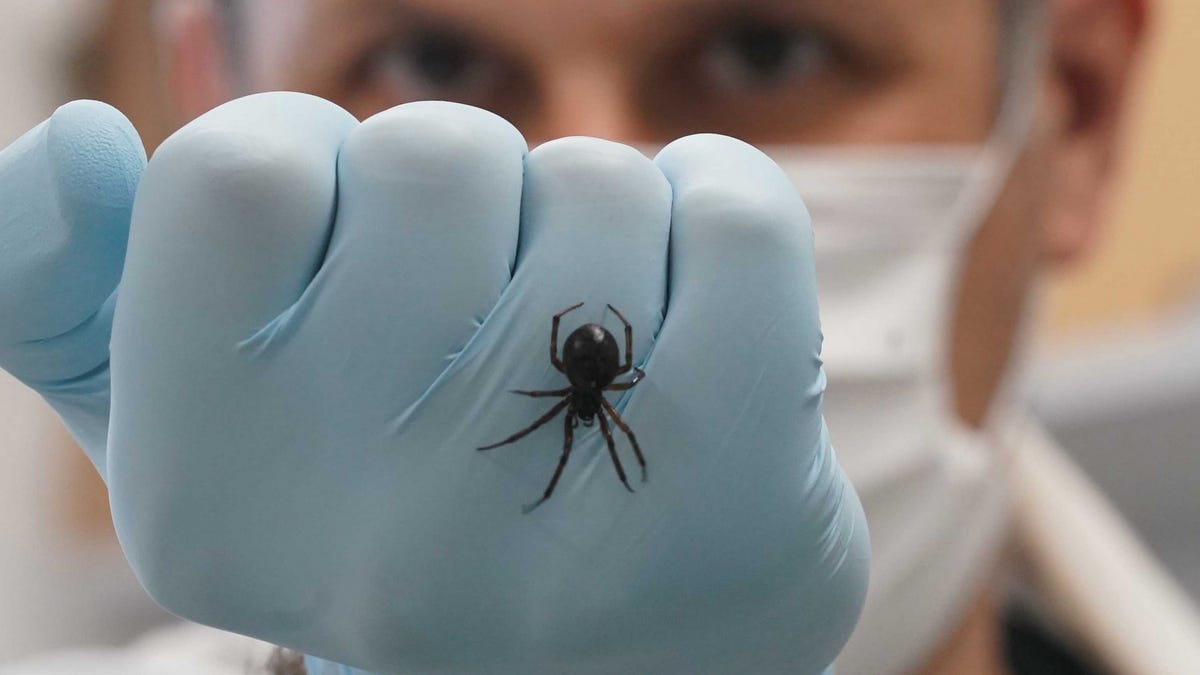'Extraordinary Discovery': Invasive Spider Captures and Feeds on Bats
Looks like mammals are on the menu for noble false widow spiders in the UK.
Noble false widow spiders, venomous arachnids that resemble black widows, aren't native to the UK. They hitched a ride from Madiera and the Canary Islands in the 1800s, but have made themselves at home in their new region. At least one false widow in England has chosen an unusual cuisine item: bats.
The National University of Ireland Galway described an "extraordinary discovery" made by wildlife artist Ben Waddams at his home in England. A spider living near Waddams' attic fed off a small, young bat caught in its web.
"It is the first time a member of this family of spiders, called Theridiidae, has been recorded preying on a bat anywhere in the world, or any vertebrate in Britain," the university said in a statement on Tuesday.
The ambitious spider snacked on the pup, but also captured a second, larger bat that was rescued and released. Pipistrelle bats -- dainty mammals that only get to about to 2 inches (5 centimeters) in length -- are a protected species in the UK. Bat population declines have been traced to modern agricultural practices and loss of habitat (PDF link).
A bat entangled in a noble false widow spider's web is on the left. The noble false widow that fed on a bat is on the right.
NUI Galway zoologist Michel Dugon is co-author of a study on the spider's bat-snack published in the journal Ecosphere in late February with a fitting superhero-inspired title: "Webslinger vs. Dark Knight: First record of a false widow spider Steatoda nobilis preying on a pipistrelle bat in Britain." The study addresses the impact the invasive spiders could have on native species.
"We have been working on the noble false widow for the past five years, and have learnt a great deal about this species - yet, we are still surprised by its ability to adapt to new environments and make the most of the resources available," said Dugon. "It is a truly remarkable species."
NUI Galway released a video with behind-the-scenes details on the spider and how it managed to capture and consume a bat.
While noble false widow spiders are mainly a threat to their prey, NUI Galway researchers found the spider's bite can require hospitalization for humans in some severe cases.
The research team behind the spider study is encouraging the UK public to contact them with sightings of the noble false widow. More reports could help scientists better understand the spider's behavior and how it affects native species.
The false widow's bat-eating event joins a gruesome list of scientifically fascinating arachnid meals. Researchers in 2021 published a study cataloging reports of spiders eating snakes all over the globe. Spiders might be small, but they're mighty.


